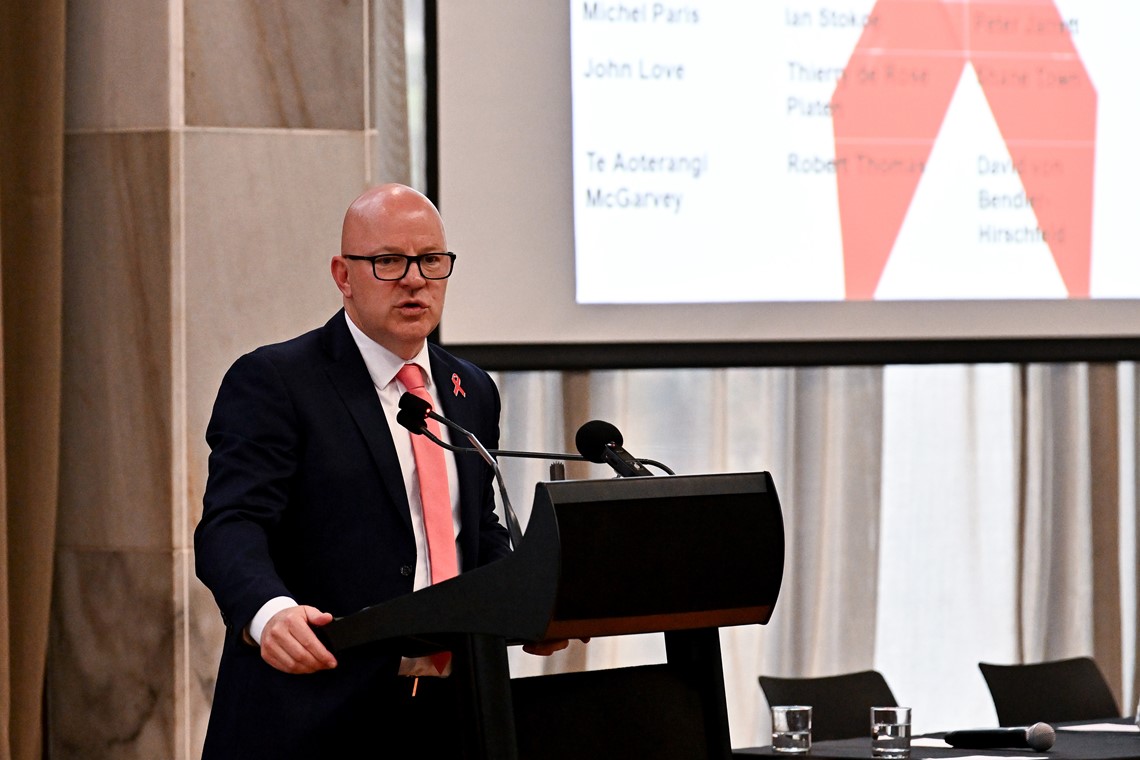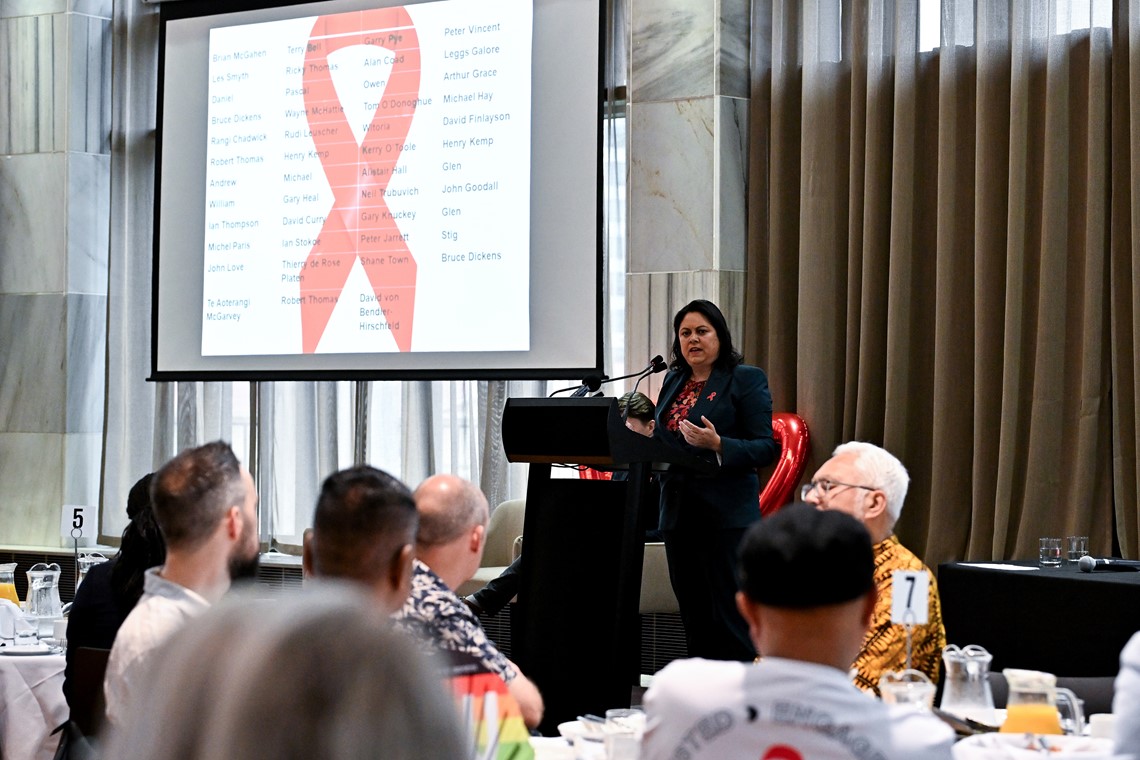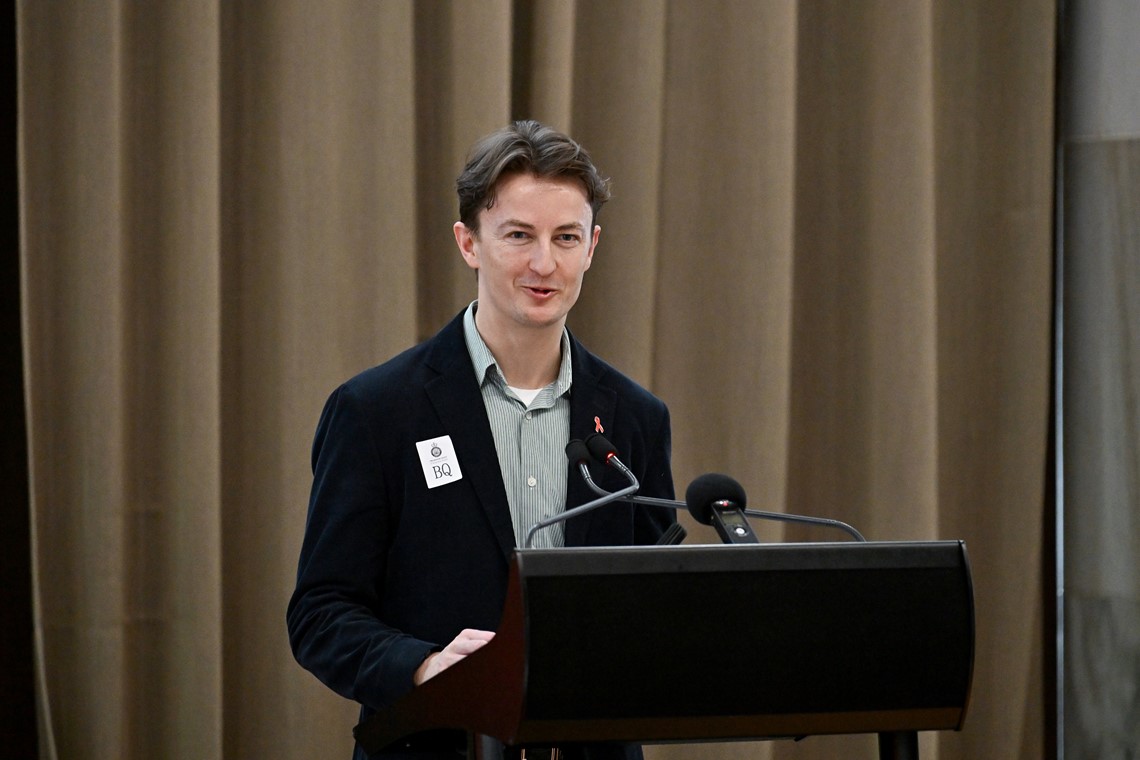World AIDS Day Parliamentary Breakfast
The Government has made a clear commitment to the HIV response in Aotearoa New Zealand and confirmed that the HIV Action Plan funding will not be reallocated as part of other cuts to the health system.
Photo credit: Masa Udugawa
Associate Minister of Health Matt Doocey made this clear at the inaugural World AIDS Day Parliamentary Breakfast held on Tuesday 3 December.
The breakfast reaffirmed multipartisan support for Aotearoa New Zealand’s goal of being the first country in the world to eliminate local transmission of HIV by 2030.

Burnett Foundation Aotearoa hosted the event alongside Associate Minister of Health Matt Doocey, Positive Women Inc., Body Positive Inc., and Toitū te Ao.
Amongst the specific HIV prevention and stigma initiatives that will continue were investments in contact tracing efforts, sexual health resourcing, newly appointed Clinical Advisor, implementation of the Monitoring Plan, with the first report to be released next year, and a national anti-stigma social marketing campaign.

Hon Dr Ayesha Verrall spoke to the importance of community, and community-led responses as key to the success of the HIV Action Plan.
Burnett Foundation Aotearoa Chief Executive Joe Rich says he is thrilled to see the Government backing a community-led response and acknowledging it as a key to the success of the HIV Action Plan.
A new report on the social and economic impact of a community-led HIV response showed that every $1 invested in Burnett Foundation Aotearoa means $5.05 saved for the New Zealand public in downstream costs for diagnoses avoided.
“Our work is always people-centred and community-focused first but having the evidence that access to prevention and treatment also helps our economy and health resources, aids us in demonstrating the value of our mission,” says Mr. Rich.
The report also found that locally acquired cases have fallen by 56% per capita since the epidemic’s peak in 2016, and the Foundation has increased testing per capita by 51% over the same period.
$175 million were saved in lifetime costs to New Zealand over 8 years, compared to if acquisition rates had remained at 2016 levels.
Mr. Rich says that focusing on a community-led response and the response for Māori must be kept at the forefront of this advocacy.

“This new report shows that success comes from having communities lead, as well as having targeted responses for those communities that are most marginalised, including takatāpui. We are appreciative of the government’s continued support for this work over the last 40 years of the HIV response, and the benefit for New Zealand as a whole is clear.”
World AIDS Day is commemorated worldwide on 1 December and has been held annually since 1988.


